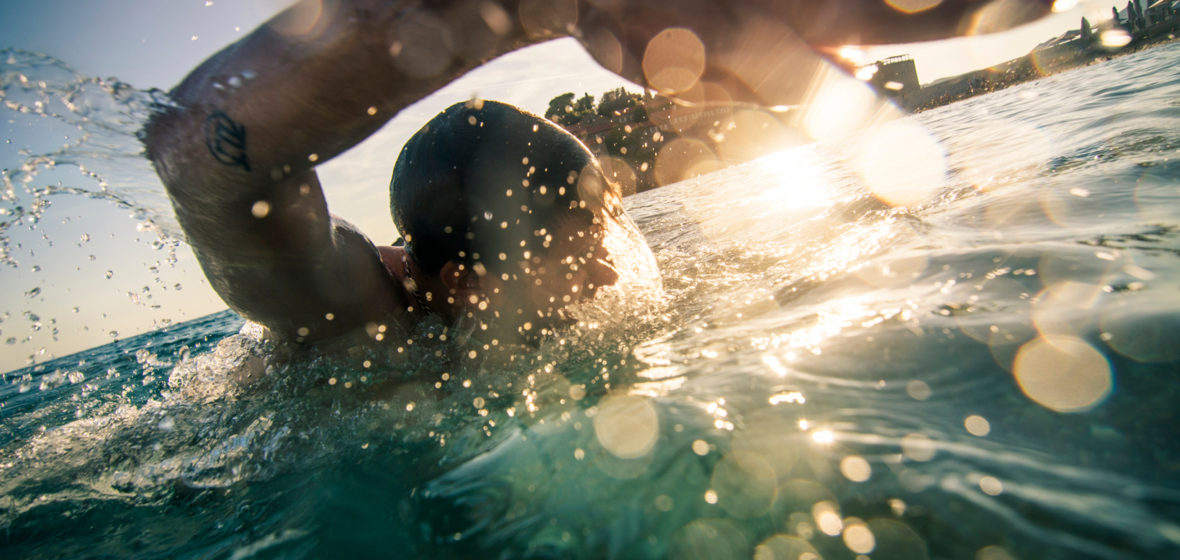Anyone who lives near a beach or water can tell you ocean swimming has taken off during NSW’s winter lockdown. Here are some tips for newbies interested in diving in
Ocean swimming has exploded in popularity this winter. Glance across the water at Bondi Beach any morning of the week and you will see a motorway of arms heaving over the waves, toes splashing in the swell, as swimmers take on the iconic bay swim. Wetsuits are sold out everywhere. It seems lockdown is giving everyone a reason to dive into the world we love.
You might be thinking, what is all the fuss about? Ocean swimming has plenty of benefits: it’s free, it’s inclusive for people of all ages, shapes and sizes, it’s a non-weight-bearing activity with a low risk of injury. You can explore the natural environment around you, and you feel amazing afterwards.
However, newbie swimmers often tell tell us there are common issues holding them back. Here are our top tips for overcoming some of those issues.
Cold
Ocean temperatures on the east coast tend to lag behind the change in air temperature through the seasons. So, although spring has sprung and the days are warming up, the water will stay cold until late November. Fortunately, overcoming the cold is easy with modern wetsuits. Most full-length suits start around $250; some of the better swimming wetsuit brands include Orca or 2XU. If you’re a surfer and wear a surf wetsuit, you may find that type of wetsuit has less flexibility around the shoulders, but it will keep you warm for swimming nevertheless.
We typically wear wetsuits from June to November/December, so if you choose to make the investment and stick at swimming you will get your money’s worth. Wear a swimming cap to prevent brain freeze and if you really struggle with the cold, you can double up with two caps. After a swim, make sure you warm up with a hooded towel, lots of layers and a hot coffee.
Fear
One of the main concerns of those new to ocean swimming is fear of the unknown. Sharks, currents, big waves and deep, murky water can all add to this fear. To overcome it, find yourself a swim buddy (or a few, once COVID-19 restrictions allow). Stopping to float and have a chat is one of our favourite parts of ocean swimming and it’s an easy way to distract your mind from negative thoughts.
Ocean knowledge
Fear of the unknown is one thing – but a lack of knowledge around rips, waves and general ocean conditions is more dangerous. You should always check conditions before heading out for a swim; sit on the beach watching the waves and currents before you dive in. Completing a lifeguard course or training with a qualified swimming teacher can help you learn to identify a rip, stay calm in the water and get back to shore or call for help. Most importantly, you should feel confident in your swimming ability and endurance to complete the planned swim. If you are unsure, try completing a bay swim on calm water and stay close to shore so you can come to the sand easily if you’re tired.
Lack of confidence
A lack of confidence usually comes from being unsure if you are swimming “right” or if you get tired quickly. However, if you took swimming lessons as a child you should find you can get back into the stroke quite easily through muscle memory. It will become easier as you build endurance and strength. If your swimming background is more limited, a coach will be able to fix up breathing technique and other stroke inefficiencies which may make you tired or slow. A coach can also help with teaching you specific skills in ocean swimming to help make your journey easier.





